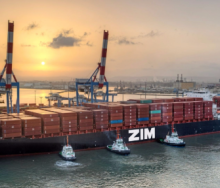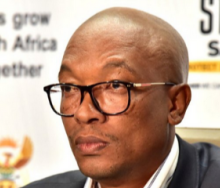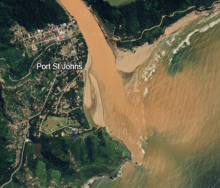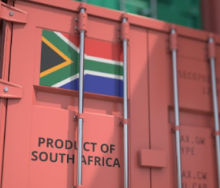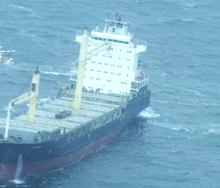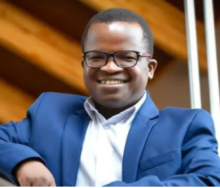The Maritime Studies Department at the Durban University of Technology (DUT), in partnership with the Moses Kotane Research Institute and the Shanghai Maritime University (SMU), recently launched its newly built navigation simulation laboratory.
The navigation simulation laboratory was established after DUT identified a gap in the training facilities for maritime education and training, in particular a need to upgrade and expand the navigation simulator to meet higher maritime training standards and requirements.
DUT nautical studies lecturer, Nkosinathi Manqele, speaking at the official launch, said it had taken five years of collaboration and innovation to build the laboratory.
“The dream started long before 2018 but the project itself started in 2019 and we worked through five years of hard work, sweat and tears, including the continued disruptions of COVID-19 and lockdown, until we got to this stage,” said Manqele.
DUT Deputy Vice-Chancellor: Teaching and Learning, Azwitevhelwi Nevhutalu, acknowledged the role the previous head of the department, the late Captain Leon Govender, had played in developing the department’s facilities.
DUT Executive Dean in the Faculty of Applied Sciences, Professor Suren Singh, said the dream of enhancing the simulation facility began after Govender visited SMU and identified an opportunity to collaborate with the Chinese to expand the university’s navigation simulator capacity.
“This facility showcases our university's unwavering commitment to innovation, research, and the development of top-tier maritime experts. The visionary leadership of the late Captain Leon Govender… ignited the spark for this extraordinary project,” said Singh.
He said a visit by Professor Jin Yonxin, President of SMU, in 2016 had also contributed to the vision for the project, leading to the university securing more than R10 million in funding support through the Moses Kotane Institute.
“This laboratory is equipped with the latest technology to simulate a wide range of navigational scenarios, and our students and researchers will have the opportunity to experiment, learn, and develop cutting-edge solutions.”
Moses Kotane Research Institute CEO, Thembelihle Mapipa, outlined the organisation’s role in facilitating the process of securing funding for the laboratory.
“We facilitated the funding that contributed to the final product. We are mandated to promote economic research and innovation, which includes information and communications technology and maritime as well as skills development and training. We are entrusted with the duty of leading KwaZulu-Natal in maritime-related matters,” said Mapipa.
The institute is grant funded by the KZN Department of Economic Development, Tourism and Traditional Affairs.


